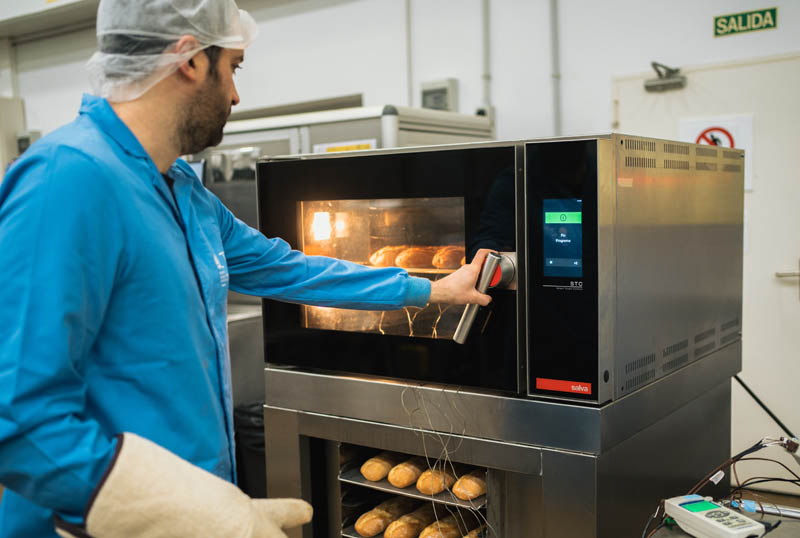Foodtech and cancer: technology for health
Últimas noticias
Una mirada LGTBIQ+ al reino animal
Circular Economy in Action: Valorisation of By-products through Projects like PRIMA NEWFEED
Strategic Perspectives: Highlights from the Food4Future World Summit for Business Leaders
ITZIAR TUEROS, Food and Health Coordinator
Food is a great ally for people with cancer. The latest technologies and advances in the foodtech sector have achieved considerable progress in the nutrition of patients and, consequently, in their quality of life. We talked to Itziar Tueros, Food and Health coordinator, about how foodtech and cancer is an extremely promising alliance.
Índice de contenidos
- How foodtech can help people affected by cancer
- Some projects we have been involved in working on foodtech and cancer
- A personalised diet can benefit the health of people who are obese or suffer diseases such as cancer or dysphagia.
- Clinical nutritional studies: key issues on which food technology will be based
- The research challenges in nutrition research for cancer patients
How foodtech can help people affected by cancer
Foodtech, which applies technologies such as big data or artificial intelligence, as well as new biotechnologies, such as omics sciences, which analyse proteins, genes, metabolites, or the characteristics of the bacteria in our digestive system (microbiota), allow us to better understand metabolism and the relationship between food and health or disease. Specifically, in the case of cancer patients, it allows us to study the most appropriate diet according to their altered metabolism and the different side effects they suffer as a result of the treatments (loss of taste, dry mouth, mouth sores, dysphagia, etc.).
Some projects we have been involved in working on foodtech and cancer
The ONCOFOOD project has been a milestone in terms of developing food solutions for cancer patients, in which these patients have played a key role. They have been involved from the beginning, in co-creation sessions and at the end, as they have been in charge of tasting the products developed, contributing their vision, which has been useful in adapting them to their needs. The great challenge now lies in marketing these products so that they can be accessible to patients.
We are currently working on a project with women breast cancer survivors. More and more women are successfully overcoming this type of cancer (in Spain the survival rate is around 85%), however, these women have a higher risk of suffering from other chronic diseases, such as diabetes and cardiovascular diseases, as well as a higher risk of recurrence. The aim of this project is to design a personalised nutritional strategy based on molecular tools such as lipidomics and nutrigenetics to improve their nutritional and metabolic status. We are currently in the recruitment process at the Donostia and Onkologikoa hospital in San Sebastian, and hope to finish by 2023. This project is funded by the Spanish Association Against Cancer, and is particularly novel, as it is the first time that this association has funded a nutrition and cancer project within its “strategic projects” programme.
A personalised diet can benefit the health of people who are obese or suffer diseases such as cancer or dysphagia.
It is recognised that different people react differently to specific foods or diets in both the short and long term. Moreover, existing nutritional guidelines focus on general recommendations that do not take into account individual needs or, at the very least, those of population groups with common characteristics. A better understanding of the metabolism and requirements of people with obesity, cancer or dysphagia allows us to design more precise nutritional guidelines at group level, but also foods with characteristics that meet their needs very accurately. In addition, from a more emotional point of view, people like to feel unique and to be given recommendations that may be the most suitable for them, since, as I said, each person responds differently.
In order to be able to personalise a nutritional recommendation, it is necessary to approach it from a holistic point of view, first it is necessary to characterise the person at different levels: nutritional-behavioural habits, level of physical activity, general state of health, and as we have been saying, especially at molecular level. To do this, we need to measure different parameters in blood, urine and/or faeces. These parameters are selected for each person, according to the scientific evidence defined in previous clinical studies, we know which parameters of all those currently being investigated are the most relevant for each population group and thus we can provide a recommendation of diet, by food categories, number of servings, size of servings that is adapted to the needs of the individual.
Clinical nutritional studies: key issues on which food technology will be based
Clinical studies of nutritional interventions are those that provide the most scientific evidence, and are therefore essential in order to make progress in the study of the complex relationship between food, nutrition and state of health or disease. Without a doubt, we must continue along these lines in order to be able to transfer results to society.
The research challenges in nutrition research for cancer patients
One of the great challenges lies in the integration of nutrition into daily clinical practice, although this aspect is currently improving, unfortunately not all oncology units have support from experts in nutrition and dietetics. On the other hand, it is necessary to better understand the cancer metabolism, or the different types of cancer, in order to be able to provide nutritional guidelines that are as accurate as possible and that have a positive impact on patients. The future of nutrition will be personalised and we have to work in this area in order to be able to meet the future challenges of our society, of which cancer is a very important one.







